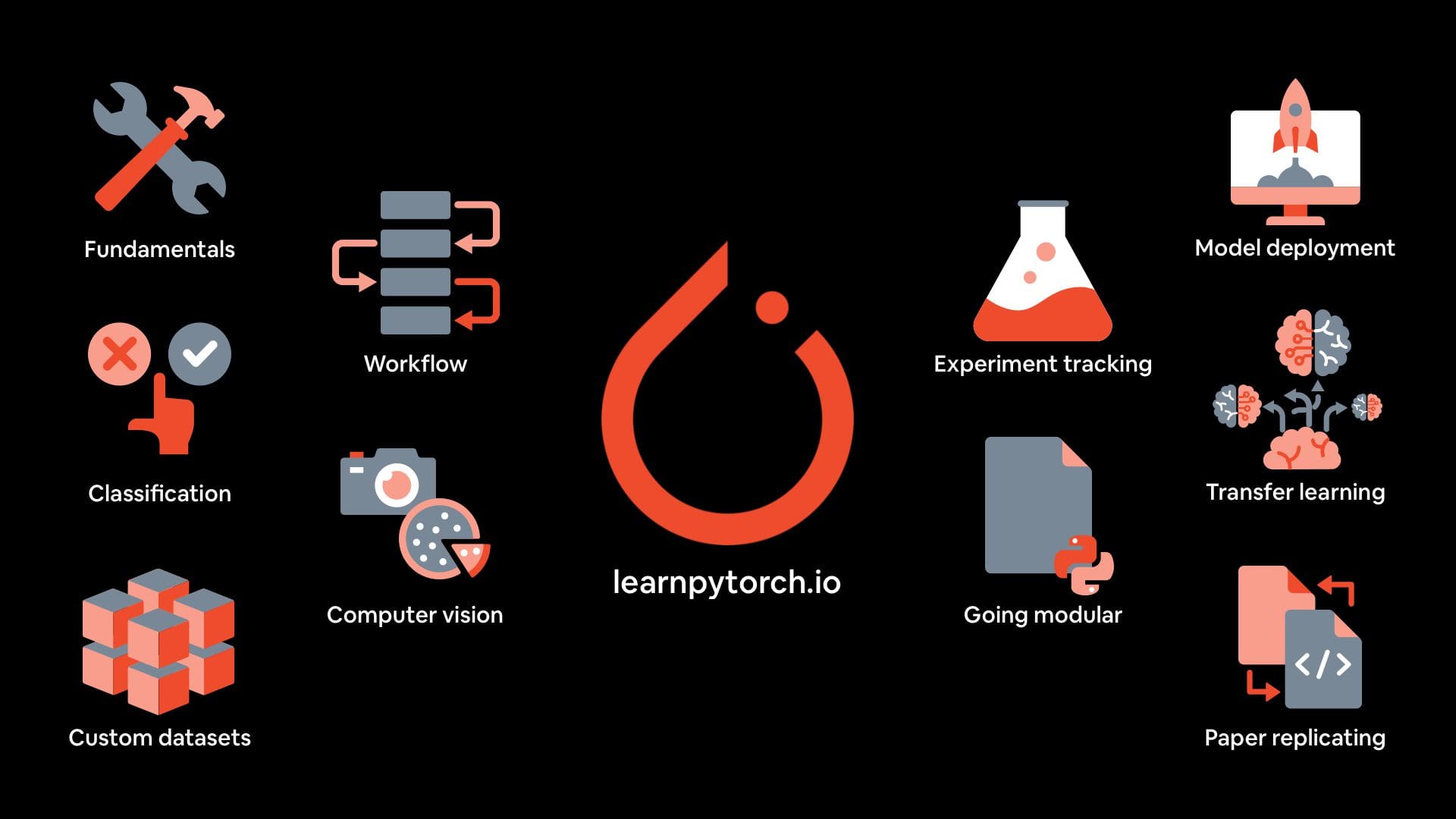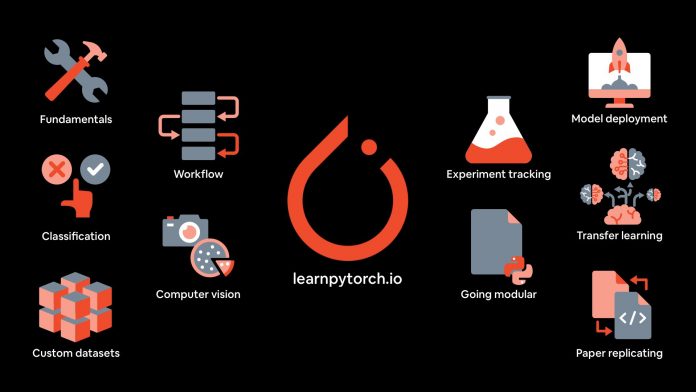Do you want to learn PyTorch for machine learning and deep learning? Check out this 24 hour long video course with accompanying notes and courseware for free. Did I mention it’s free? 
From Learn PyTorch for Deep Learning: Zero to Mastery
This is it. This is the complete PyTorch for machine learning and deep learning that you’ve been looking for. It’s thorough. It’s informative. It’s relevant. And it’s absolutely free.
The course PyTorch for Deep Learning & Machine Learning from freeCodeCamp is put together by machine learning stalwart Daniel Bourke. You might know Daniel from his prolific online presence over the past number of years, where he has blogged and created content related to machine learning for some time now.
Here is an overview of the course, straight from Daniel himself:
This course will teach you the foundations of machine learning and deep learning with PyTorch (a machine learning framework written in Python).
The course is video based. However, the videos are based on the contents of this online book.
The course covers everything you need to know to get up to speed with PyTorch and deep learning. And when I say everything, I kind of mean it: the video course is 25 hours long. That’s right, it’s more than a full day. Literally.
The course is split up into the following chapters.
This chapter covers introductory topics, including an intro to PyTorch, deep learning, getting set up for the course, and an intro to the basic building block of deep learning, tensors, and their basic functionality.
This chapter gets into PyTorch, and introduces its workflow. You learn about models, train a model, evaluate a model, and save and load a model. You also write the code to do all of this as you go, learning by doing.
It’s time to get to to classification. The basics of machine learning are covered: inputs and outputs, classification neural networks architecture, converting data into tensors, loss, optimizers, evaluation, and more.
This chapter moves on to computer vision (CV), covering convolution neural networks (CNNs), obtaining CV datasets, using PyTorch DataLoaders, training CNNs, and training on the GPU.
This chapter covers creating your own datasets, the considerations involved, how to do so practically, converting images to tensors, data augmentation, baseline models on custom data, and more.
You can find the course materials here, including code and resources.
The accompanying online book by Daniel, Learn PyTorch for Deep Learning: Zero to Mastery, can be found here.
The sole video for the course, all 25 hours of it, can be found below or on YouTube.
This really does seem like the course to jump into if you want to learn PyTorch, and how to use it for deep learning. Daniel has done a commendable job of packing so much info into such a wide-ranging course, and he should be lauded for the work that went into such a robust course.
Matthew Mayo (@mattmayo13) is a Data Scientist and the Editor-in-Chief of KDnuggets, the seminal online Data Science and Machine Learning resource. His interests lie in natural language processing, algorithm design and optimization, unsupervised learning, neural networks, and automated approaches to machine learning. Matthew holds a Master’s degree in computer science and a graduate diploma in data mining. He can be reached at editor1 at kdnuggets[dot]com.
Get the FREE collection of 50+ data science cheatsheets and the leading newsletter on AI, Data Science, and Machine Learning, straight to your inbox.
By subscribing you accept KDnuggets Privacy Policy
Get the FREE collection of 50+ data science cheatsheets and the leading newsletter on AI, Data Science, and Machine Learning, straight to your inbox.
By subscribing you accept KDnuggets Privacy Policy
Subscribe To Our Newsletter (Get 50+ FREE Cheatsheets)
Get the FREE collection of 50+ data science cheatsheets and the leading newsletter on AI, Data Science, and Machine Learning, straight to your inbox.
By subscribing you accept KDnuggets Privacy Policy
Get the FREE collection of 50+ data science cheatsheets and the leading newsletter on AI, Data Science, and Machine Learning, straight to your inbox.
By subscribing you accept KDnuggets Privacy Policy






